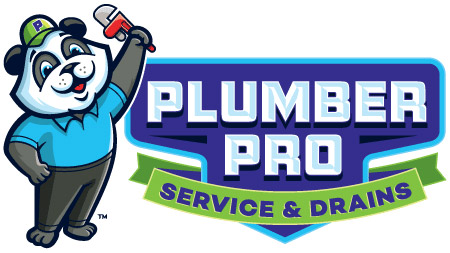Tips for Efficient Plumbing in New Lawrenceville Homes
When you’re setting up plumbing in a new Lawrenceville home, focusing on effectiveness can save you time, money, and headaches down the line. Start by choosing quality fixtures like water-saving showerheads and dual-flush toilets, which reduce water usage without sacrificing performance. Regular maintenance checks are essential to catch minor issues before they become significant problems. Inspect pipes for leaks, rust, and blockages, and keep them insulated to maintain ideal water pressure. Preventive measures, such as avoiding harmful substances down the drain, can extend the system’s lifespan. But what about ensuring effective water heating?
- Opt for high-quality, water-conserving fixtures like low-flow showerheads and dual-flush toilets.
- Schedule regular maintenance checks to detect and fix leaks, rust, and blockages early.
- Choose high Energy Factor water heaters and consider tankless models for efficient on-demand hot water.
- Prevent clogs by avoiding grease and food scraps down drains and using drain guards.
- Install pressure regulators and insulate pipes to maintain consistent water pressure and prevent leaks.
Choose Quality Fixtures
When selecting fixtures for your new Lawrenceville home, opt for high-quality options that guarantee longevity and efficiency. Start by choosing fixtures that aren’t only durable but also designed to conserve water. Investing in these fixtures means you won’t have to replace them frequently, saving you both time and money in the long run.
To make sure you get the most out of your high-quality fixtures, proper installation is vital. Hiring a professional plumber who understands the nuances of modern, efficient fixtures can make all the difference. Improper installation can lead to leaks, reduced water pressure, and even damage to your plumbing system. A skilled plumber will make certain that your fixtures are installed correctly, maximizing their lifespan and performance.
Water conservation should be a priority when choosing your fixtures. Look for options like low-flow showerheads, faucets, and dual-flush toilets. These fixtures are designed to reduce water usage without sacrificing performance.
For instance, a low-flow showerhead can help you save gallons of water every minute without compromising on water pressure. Dual-flush toilets give you the option to use less water for liquid waste, further contributing to your water-saving efforts.
Regular Maintenance Checks
Scheduling regular maintenance checks secures your plumbing system remains efficient and problem-free. By making time to inspect pipes and check faucets regularly, you can catch minor issues before they become costly repairs.
First, let’s talk about inspecting pipes. Over time, pipes can develop leaks, rust, or even blockages. By routinely checking your pipes, you’ll notice any early signs of wear and tear. Look for any moisture or rust spots, especially around joints and connections. If you detect any issues, address them immediately to avoid larger problems down the line. Not only does this save you money, but it also guarantees your home’s plumbing system continues to function smoothly.
Next, check your faucets. Dripping faucets may seem like a small annoyance, but they can lead to a significant increase in your water bill and indicate larger underlying issues. During your maintenance checks, make sure that all faucets are turned off completely and aren’t leaking. If you find a drip, it could be due to a worn-out washer or a more serious problem within the faucet itself. Either way, fixing it promptly will save water and prevent further complications.
Also, don’t forget about your outdoor faucets and hoses. These can be easy to overlook but are just as prone to wear and tear as your indoor fixtures. Inspect them for leaks and secure they’re securely connected.
Incorporating these simple yet effective steps into your routine maintenance checks will keep your plumbing in top shape. Consistent attention to your plumbing system can extend its lifespan, reduce water waste, and secure your home remains comfortable and efficient.
Efficient Water Heating
Upgrading to a high-performance water heater can decrease your energy bills and ensure a consistent supply of hot water in your Lawrenceville home. By selecting energy-saving options and incorporating smart technology, you’ll not only enhance your home’s efficiency but also improve your overall comfort.
First, look for water heaters with high Energy Factor (EF) ratings. These models are designed to use less energy while providing the same amount of hot water as standard units. Tankless water heaters are excellent energy-saving alternatives because they heat water on demand, eliminating the need for a storage tank and reducing heat loss.
Proper insulation is also essential for maximizing heat retention in your water heating system. Insulating your water heater and the first few feet of the hot and cold water pipes can greatly reduce heat loss, keeping the water hotter for longer periods without extra energy consumption.
Smart technology can boost your water heating efficiency. Smart water heaters come with Wi-Fi capabilities, allowing you to monitor and control your heater remotely through a smartphone app. You can adjust the temperature, set schedules, and even receive maintenance alerts, ensuring your system operates at its best.
Here are some tips to help you enjoy these advantages:
- Select a high-performance water heater with a high EF rating.
- Consider tankless water heaters for on-demand hot water.
- Insulate your water heater and adjacent pipes for improved heat retention.
- Utilize smart technology to manage and monitor your water heater remotely.
- Schedule regular maintenance to keep your water heater running efficiently.
Prevent Clogs and Leaks
While efficient water heating is important, you should also take steps to prevent clogs and leaks in your Lawrenceville home’s plumbing system. Proper drain care and pipe insulation are essential for maintaining an efficient and leak-free plumbing system.
First, let’s talk about drain care. Avoid pouring grease, coffee grounds, and food scraps down the kitchen sink. These substances can build up over time and cause significant clogs. Use a drain guard to catch hair and debris in the bathroom. Additionally, regularly flush your drains with hot water and a mixture of baking soda and vinegar to keep them clear.
Next, focus on pipe insulation. Insulating your pipes helps to prevent leaks caused by freezing temperatures, especially during the colder months in Lawrenceville. You can use foam pipe insulation or fiberglass wrap to cover your pipes, reducing the risk of burst pipes and subsequent water damage. Insulation also helps maintain water temperature as it travels through the pipes, improving overall energy efficiency.
Here’s a quick reference table for maintaining your plumbing system:
| Task | Materials Needed | Frequency |
|---|---|---|
| Kitchen drain care | Drain guard, baking soda | Weekly |
| Bathroom drain care | Drain guard, vinegar | Weekly |
| Pipe insulation | Foam insulation, tape | Annually |
| Inspecting for leaks | Flashlight, wrench | Monthly |
Optimize Water Pressure
Maintaining perfect water pressure in your Lawrenceville home ensures efficient plumbing performance and enhances your overall water usage experience. High water pressure can cause unnecessary stress on your pipes, leading to leaks and damage, while low pressure can make daily tasks like showering and washing dishes frustrating.
To optimize water pressure, start by installing pressure regulators. These devices help maintain a consistent pressure level throughout your home, preventing the spikes that can harm your plumbing system. You can easily adjust the settings to find the ideal balance for your household needs.
Next, consider the role of pipe insulation. Insulated pipes reduce the risk of pressure loss and protect against temperature fluctuations. This is particularly important in colder months when pipes are more vulnerable to freezing and bursting.
Regular maintenance is also vital. Check for leaks and blockages in your plumbing system, as these can greatly impact water pressure. Addressing these issues promptly will save you from bigger headaches down the road.
Lastly, don’t forget to consult with a professional plumber. They can perform a thorough inspection and recommend specific solutions tailored to your home’s unique requirements.
Here are some quick tips to help you maintain the best water pressure:
- Install pressure regulators to keep water pressure consistent.
- Use pipe insulation to protect against temperature changes and pressure loss.
- Regularly check for leaks and blockages to prevent pressure dips.
- Adjust pressure settings to find the balance that suits your household activities.
- Consult a professional plumber for personalized advice and routine inspections.
Frequently Asked Questions
What Are the Benefits of Installing a Water Softener System?
Installing a water softener system offers you several benefits.
First, you’ll notice improved water quality, making your drinking water taste better and your skin feel softer.
Additionally, it reduces plumbing maintenance costs by preventing mineral build-up in your pipes and appliances.
You’ll extend the life of your water heater, dishwasher, and washing machine, saving money in the long run.
Plus, your laundry will come out cleaner and softer.
How Can Smart Home Technology Improve Plumbing Efficiency?
Smart home technology can greatly improve your plumbing efficiency. Energy saving faucets reduce water usage, lowering your utility bills.
Leak detection systems alert you to potential problems before they escalate, saving you money on repairs. By integrating these technologies, you’ll maintain a more efficient and cost-effective plumbing system.
It’s a smart investment that enhances convenience and helps protect your home from water damage.
What Are the Best Practices for Winterizing Plumbing in New Lawrenceville Homes?
When winterizing plumbing in new Lawrenceville homes, it is important to follow a winterizing checklist and use effective insulation techniques.
- Drain all outdoor faucets and hoses, then insulate exposed pipes to prevent freezing.
- Install pipe sleeves or heat tape on vulnerable sections.
- Keep your home’s temperature consistent and open cabinet doors to allow warm air to circulate around plumbing.
- Don’t forget to check for any leaks and seal them to avoid water damage.
How Do Green Plumbing Solutions Impact Water Conservation?
Green plumbing solutions have a profound impact on water conservation by reducing water waste and promoting efficient usage. You’ll see benefits like low-flow fixtures, rainwater harvesting systems, and energy-efficient appliances. These innovations not only conserve water but also lower your utility bills.

